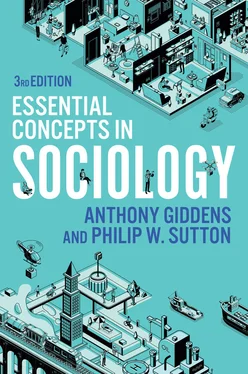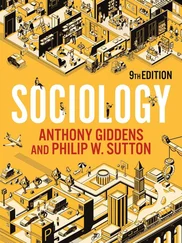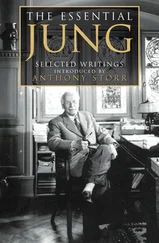1 ...7 8 9 11 12 13 ...20 Weber’s fourth type, formal rationality, is based on the calculation of the most effective means to achieve a specific goal in the context of a set of general or universal laws or rules. The rationalization of Western societies involves the growth and spread of formal rationality and calculation into more and more spheres of life as bureaucracy becomes the most widely adopted form of organization. Economic decisions are the paradigmatic form, though means–end calculations have become commonplace in many other areas of life too. Rationalized Western music, for example, uses a universal system of notation and measurement of rhythmic and tonal differences and is codified and written down, allowing the compositions of the towering geniuses to be performed by anyone who can read sheet music and play an instrument. Music has become rule-governed, calculable and predictable but less spontaneous and flexible.
As capitalismexpanded along with state bureaucracies, formal rationality gradually became embedded in the major institutions of society, edging out other forms. Weber was quite clear that this process was likely to be permanent, as the impersonal, bureaucratic form of administration that was adopted throughout office environments, workplaces and state departments was simply the most efficient method of organization yet devised. By squeezing out all personal favours and emotional connections, bureaucracies ensure that the best-qualified people are appointed to each position and that career promotions are based on demonstrated evidence of competence and performance in the role. Remember, this is an ideal type. Similarly, the basic double-entry book-keeping associated with capitalist profit-making (recording credits and debits) produces a calculative mentality which encourages instrumentally rational action, and, as capitalist firms become ever larger and more geographically dispersed, an efficient administration becomes ever more important.
Although he saw the growth of this form of rationalization as inevitable, Weber also saw some clear dangers. The pursuit of efficiency and technical progress begins to produce a society that becomes increasingly impersonal, seeming like an external force that controls our destiny. In Weber’s thesis, society turns into a ‘steel-hard cage’ from which there is no prospect of escape. A further consequence is that there is a tendency for the means to dominate over the ends. That is, bureaucracies are a means to achieving other ends, such as an efficient civil service, a well-ordered health service or an efficient welfare benefits system. But over time, as its powergrows, the bureaucracy takes on a life of its own, so that, rather than being the servant to other ends, it becomes the master. Weber saw this as a process of rationalization towards irrational outcomes which can be observed in many areas of society.
As Weber himself saw, the process of rationalization does not inevitably lead to progressive development, but it can produce contradictory outcomes and new social problems. However, there are also criticisms of the rationalization thesis itself. Although capitalism continues to dominate the world’s economies, the extent to which bureaucracies in the traditional mould remain dominant can be questioned. Over recent years, there has been a growth in looser organizational forms that are based more on a networkstructure than on the hierarchical model outlined by Weber (van Dijk 2012). The question is, do such networked organizations still promote formal rationality? Rationalization is also linked to the fate of religion, and some sociologists have argued that, far from receding, religion enjoyed a resurgence in the late twentieth century, with religious fundamentalism, televangelism and a range of new religions emerging. Does this represent a ‘re-enchantment of the world’ which runs counter to Weber’s rationalization thesis?
Given the rise of critical postmodernideas in the mid-1980s, Weber’s rationalization thesis may appear outmoded, as trust in sciencehas been eroded and a certain ‘re-enchantment’ of the world seems to be growing (Gane 2002). However, some important studies have been influential in extending and modernizing Weber’s original ideas. Zygmunt Bauman’s Modernity and the Holocaust (1989) rejects arguments suggesting that Nazi policy and implementation of the mass murder of Jewish populations in Europe was an essentially ‘uncivilized’ aberration from the progressive direction of modernity. Instead, Bauman shows that the Holocaust could not have taken place without the rational, bureaucratic administration that organized transportation and record-keeping or the rational actions of the perpetrators and victims. In this sense the rationalization process does not inevitably create a bulwark against barbarism but, given the right context, is just as likely to facilitate it.
George Ritzer ([1993] 2021) applied the rationalization thesis to contemporary fast-food restaurants. In Weber’s time, the modern bureaucratic office was the ideal-typical vehicle for rationalization, but in the late twentieth century it became the ubiquitous fast-food restaurant, typified by the McDonald’s restaurant chain, with its standardized products, highly efficient service, measurable staff targets and uniform customer experience. Over recent years Ritzer has argued that McDonaldization is not limited to the ‘bricks and mortar world’ of restaurants and material business premises but also extends online. For example, he sees Amazon.com, with its focus on calculability and quantification, its ratings and rankings of products and sellers, and its reliance on algorithms and big data as exemplifying the central characteristics of the McDonaldization process. Like Weber, Ritzer sees this rationalized model producing its own irrationalities in both fast-food and online sales: staff are deskilled or low-skilled, their jobs are routinized and subject to intensive surveillance, the experience for diners is degraded and waste becomes endemic. In the quest to reduce chaos and uncertainty, the ‘McDonaldization’ process generates a new type of rationalized ‘steel-hard cage’.
References and Further Reading
Bauman, Z. (1989) Modernity and the Holocaust (Cambridge: Polity).
Gane, N. (2002) Max Weber and Postmodern Theory: Rationalization versus Re-enchantment (Basingstoke: Palgrave Macmillan).
Kalberg, S. (1985) ‘Max Weber’s Types of Rationality: Cornerstones for the Analysis of Rationalization Processes in History’, American Journal of Sociology , 85(5): 1145–79.
Ritzer, G. ([1993] 2021) The McDonaldization of Society: Into the Digital Age (9th edn, New York: Sage).
Van Dijk, J. (2012) The Network Society (3rd edn, London: Sage).
Society
Working Definition
A concept used to describe the structured social relations and institutions among a large communityof people which cannot be reduced to a simple collection or aggregation of individuals.
The concept of society can be traced to the fourteenth century, when the primary meaning was companionship or association, and this limited sense can still be seen in eighteenth-century usage to describe upper-class groups or ‘high society’. The term was also used to describe groups of like-minded people, as in the ‘Society of Friends’ (Quakers) or various scientific ‘societies’. However, alongside this was a more general and abstract definition of society, which became more firmly established by the late eighteenth century (Williams 1987). From this general concept, the specifically sociological meaning of society was developed in the nineteenth century.
Читать дальше












